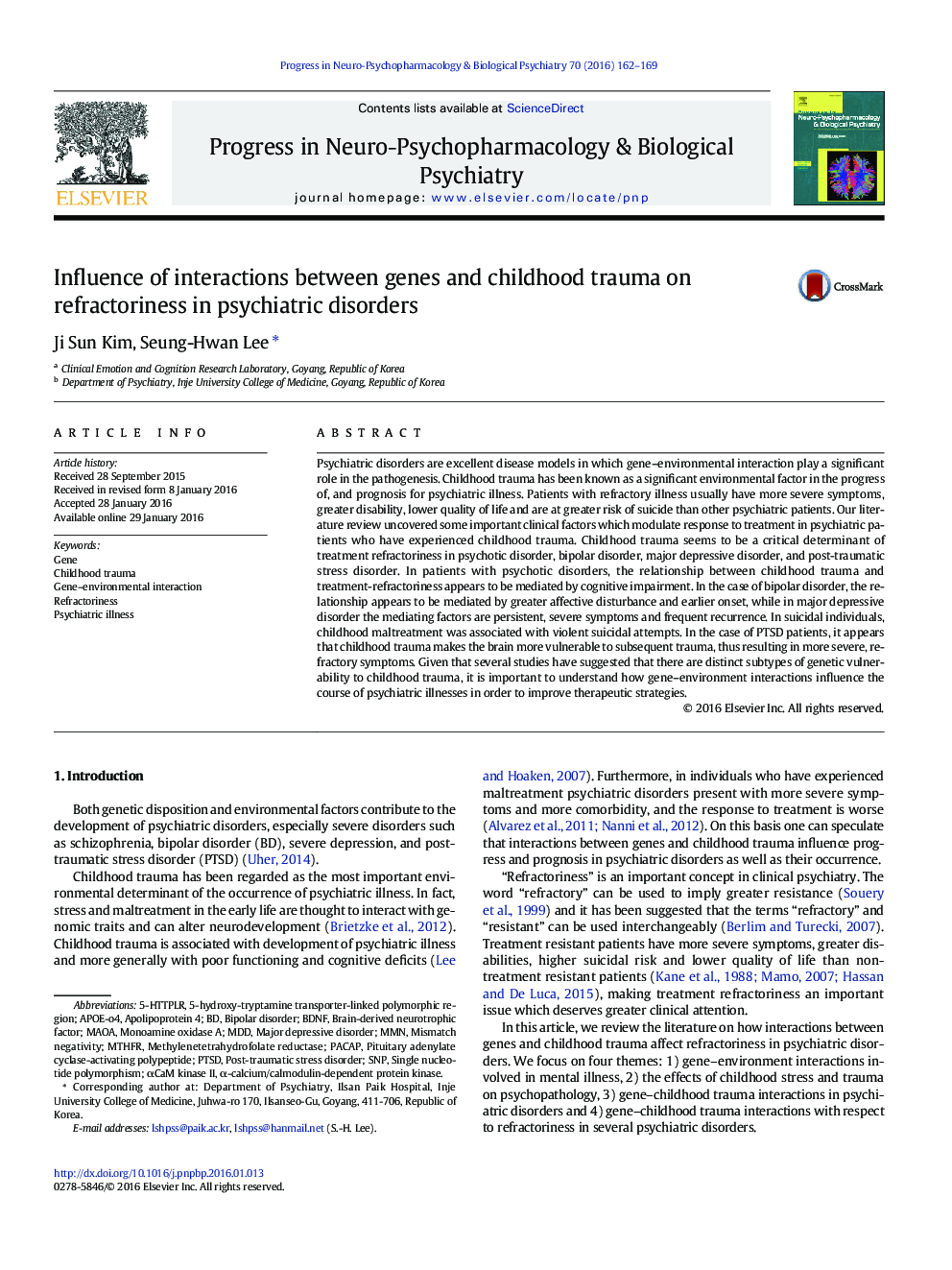| کد مقاله | کد نشریه | سال انتشار | مقاله انگلیسی | نسخه تمام متن |
|---|---|---|---|---|
| 2564672 | 1561024 | 2016 | 8 صفحه PDF | دانلود رایگان |
• The childhood trauma produces epigenetic changes, which make victims vulnerable to adult trauma.
• The childhood trauma interacting with predisposing gene leads to psychopathology related to mental illness.
• The interaction between gene and childhood trauma influences the treatment refractoriness.
Psychiatric disorders are excellent disease models in which gene–environmental interaction play a significant role in the pathogenesis. Childhood trauma has been known as a significant environmental factor in the progress of, and prognosis for psychiatric illness. Patients with refractory illness usually have more severe symptoms, greater disability, lower quality of life and are at greater risk of suicide than other psychiatric patients. Our literature review uncovered some important clinical factors which modulate response to treatment in psychiatric patients who have experienced childhood trauma. Childhood trauma seems to be a critical determinant of treatment refractoriness in psychotic disorder, bipolar disorder, major depressive disorder, and post-traumatic stress disorder. In patients with psychotic disorders, the relationship between childhood trauma and treatment-refractoriness appears to be mediated by cognitive impairment. In the case of bipolar disorder, the relationship appears to be mediated by greater affective disturbance and earlier onset, while in major depressive disorder the mediating factors are persistent, severe symptoms and frequent recurrence. In suicidal individuals, childhood maltreatment was associated with violent suicidal attempts. In the case of PTSD patients, it appears that childhood trauma makes the brain more vulnerable to subsequent trauma, thus resulting in more severe, refractory symptoms. Given that several studies have suggested that there are distinct subtypes of genetic vulnerability to childhood trauma, it is important to understand how gene–environment interactions influence the course of psychiatric illnesses in order to improve therapeutic strategies.
Journal: Progress in Neuro-Psychopharmacology and Biological Psychiatry - Volume 70, 3 October 2016, Pages 162–169
